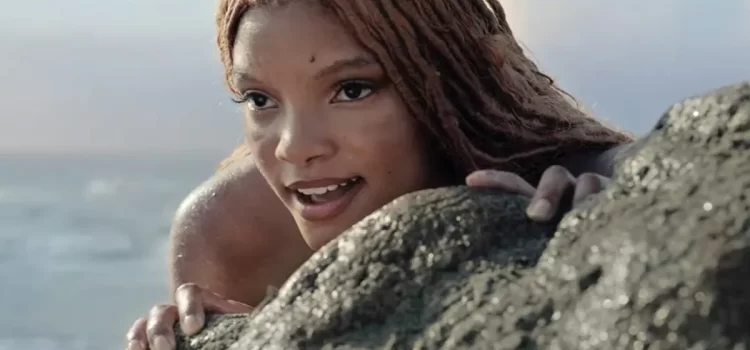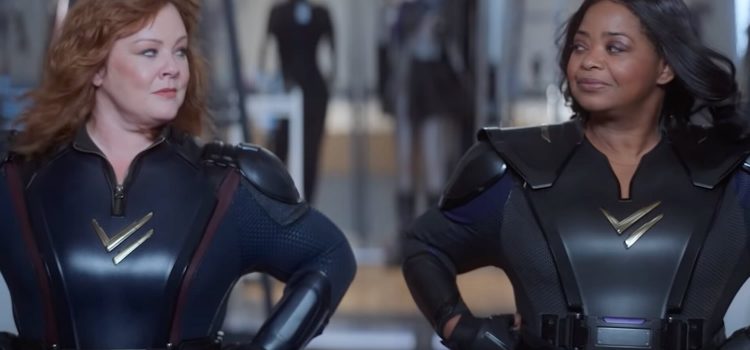By Alex McPherson
Elevated by a magnetic performance from Halle Bailey, director Rob Marshall’s “The Little Mermaid” neither wows nor underwhelms — a film that’s far from essential, but one that provides light, comforting entertainment.
Retelling the story from the 1989 animated version, this live-action iteration follows Ariel (Bailey), a courageous, rebellious mermaid and youngest of several sisters, who’s deeply curious about the surface world and dissatisfied with her life underwater. With her fish pal Flounder (Jacob Tremblay) in tow, Ariel collects human artifacts to store in her grotto among the coral — her collection is a reminder of a world she’s eager to explore and held back from reaching. Ariel’s father, King Triton (Javier Bardem), refuses to let her have any contact with humans. He instructs his right-hand-crab, the wry-yet-soft-hearted Sebastian (Daveed Diggs) to keep her out of trouble (spoiler alert: he soon takes Ariel’s side).
Ariel, with an adventurous spirit and desire for freedom, stumbles upon Prince Eric (Jonah Hauer-King), the new leader of an island nation somewhere in the Caribbean who wishes to expand the kingdom and is discouraged by his mother (Noma Dumezweni). Ariel falls in love with him at first sight. After a violent storm ruins his raucous birthday celebrations, Ariel saves him, dragging him to safety on his island’s beach, singing her siren song to keep him alive.
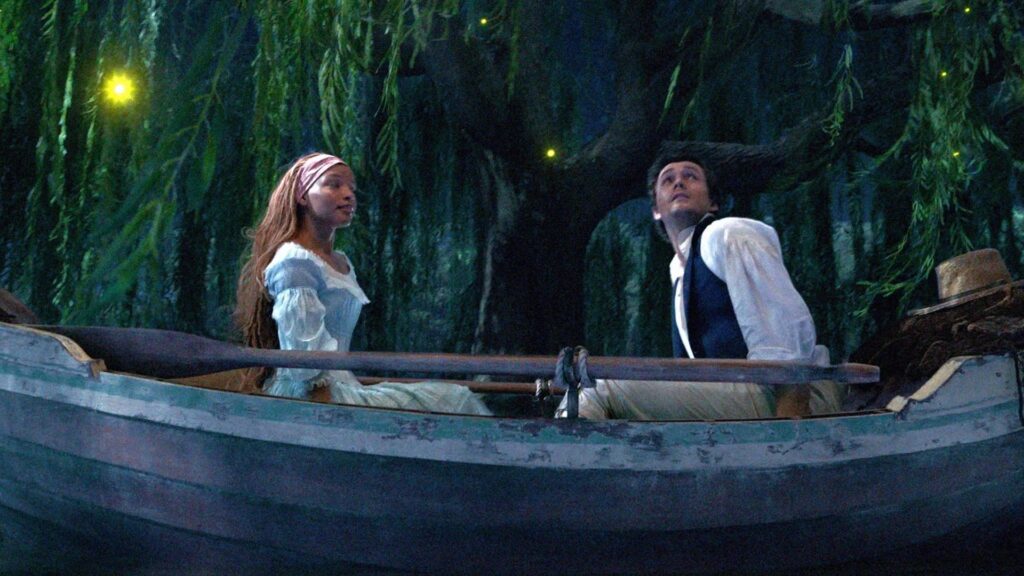
Back underwater, Ariel can’t stop thinking about him (and vice versa), which attracts the attention of “the sea witch” Ursula (Melissa McCarthy), Triton’s sister who was previously exiled from the kingdom. Conniving and fueled by resentment, Ursula makes a deal with Ariel to transform her into a human for three days in exchange for Ariel’s siren voice. If she can share a “true love’s kiss” with Eric within those three days, she can remain a human permanently. If not, she’s under Ursula’s control, and will be used as ransom for Triton’s all-powerful trident. More complications arise, putting the pressure on Sebastian, Scuttle the seagull (Awkwafina), and, to a lesser extent, Flounder, to ensure the kiss comes to fruition, and help Ariel achieve her dreams.
Songs, romance, drama, and more songs ensue. Yes, this is certainly “The Little Mermaid,” so viewers expecting a massive departure from the previous film will be let down. Marshall’s film is another example of studios pandering to nostalgia rather than offering a meaningful reimagining of what’s come before. Taken on its own terms, though, the new “Little Mermaid” is still an amiably enjoyable watch — a story of love, independence, cultural understanding, and growing up that’s kept afloat by confident performances and directorial flashiness.
Bailey absolutely nails the role of Ariel — bringing to life her daring spirit and lovable stubbornness with an enchanting mixture of bravery and deep yearning for new horizons. Ariel is a (slightly) more layered protagonist this time around. She sees Eric as not only a good-looking hunk, but as a kindred spirit in search of freedom from tradition, which Marshall emphasizes through their nerdy, cute interactions with each other — they’re each fascinated with each other’s knowledge of the world beyond their homelands.
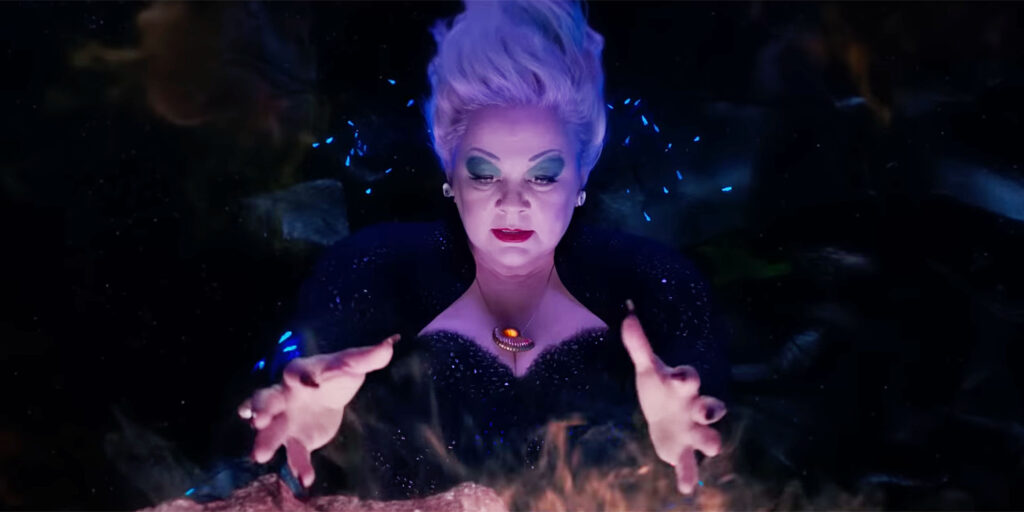
Bailey conveys Ariel’s longing and naivete in a fairly grounded fashion: the songs function as an extension of her inner thoughts, allowing for some impressively emotional moments, particularly during her renditions of “Part of Your World” and “For the First Time” (one of the several new tunes scattered throughout). It’s clear from the outset, however, that Bailey has the acting chops for a more dramatically rich take on Ariel’s story than Marshall’s film provides. She breathes exciting new life to the heroine nevertheless.
McCarthy is campily over-the-top as the fiendish squid Ursula, with her undulating tentacles and booming delivery, giving a no-holds-barred performance that’s both funny and menacing. Diggs is amusing as Sebastian (nailing his new-ish take on “Under the Sea”), sassy and witty. Awkwafina is serviceable as a seagull willing to rap if need be (Lin Manuel-Miranda’s writing hand is keenly felt), and Bardem’s talents are underused as King Triton — an oddly subdued performance conveying Triton’s anxiety and fear for Ariel’s well-being, albeit lacking gravitas.
Hauer-King is perfectly fine as Prince Eric, notwithstanding one ho-hum musical number, but “The Little Mermaid” doesn’t give him enough depth or personality to stand out among the others. The film makes an effort to more clearly paint parallels with his goals and aspirations with Ariel’s, yet the gesture comes across as more manufactured than organic — attempting to sand down the less-polished aspects of their bond from the 1989 film, as opposed to a true expansion.
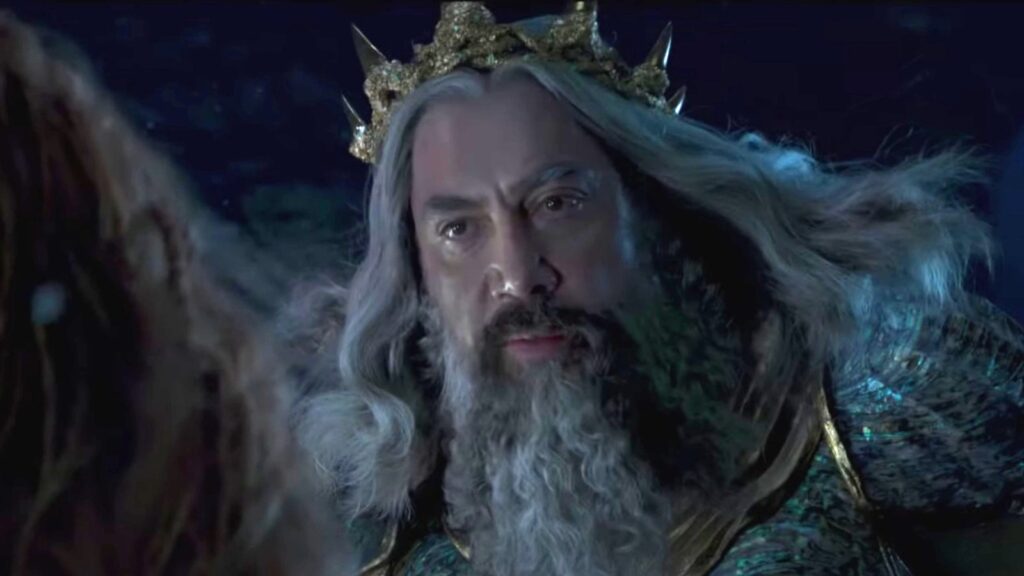
In terms of visuals, “The Little Mermaid” is hit-or-miss. Dion Beebe’s cinematography shines when gliding through environments in time to the music — bringing all manner of aquatic creatures to the stage during “Under the Sea” in a dazzling display of CGI-heavy showmanship — and during some impressively smooth scene transitions, such as one in which the camera travels through the eye of a moray eel into Ursula’s cavernous lair. What isn’t as successful is the look of the non-human characters themselves. Heads awkwardly sit on bodies and hair undulates distractingly; far easier to represent through animation than live-action. Regarding Flounder, Sebastian, and Scuttle, there’s an awkward tug-of-war between realism and fantasy, to middling effect.
Indeed, this reflects the film’s greatest flaw. “The Little Mermaid” is solid, family-friendly entertainment, but with a talent as strong as Bailey, it deserves to break free from its sanitized formula to become something fresher. Minor alterations aside, this is still the same story, where stakes are neutered and songs fly freely.
Yes, it’s great that Bailey’s casting speaks to a new generation of moviegoers, but they (and her) deserve a story less beholden to the past, as does the live-action medium itself, which pushes against the film’s fantastical elements. What’s left is a better-than-average Disney remake that has little more to say and boatloads of money to rake in.
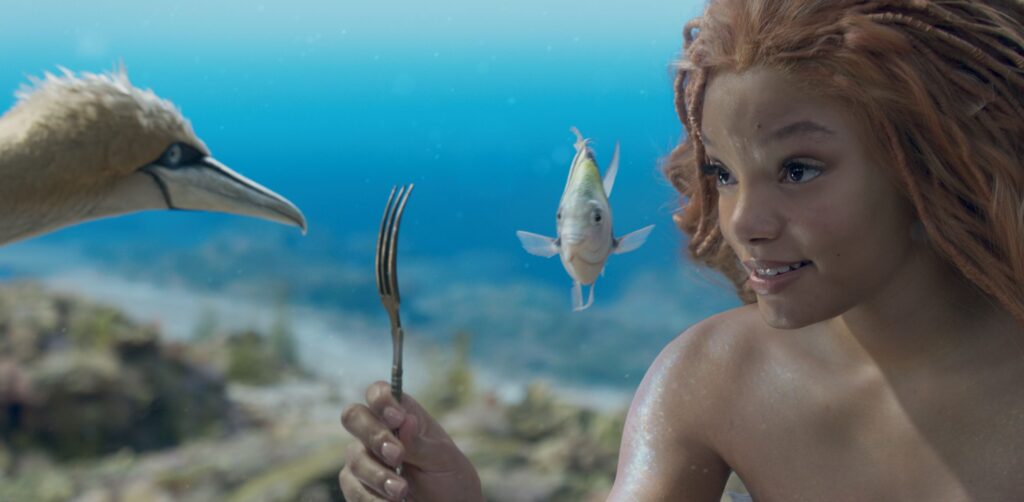
“The Little Mermaid” is a 2023 live-action, animated musical remake of Disney’s 1989 classic directed by Rob Marshall and starring Halle Bailey, Javier Bardem, Jonah Hauer-King, Awkwafina, Daveed Diggs, Jacob Tremblay and Noma Dumezweni. It is rated PG for action/peril and some scary images and the runtime is 2 hours, 15 minutes. It opens in theaters on May 26. Alex’s Grade: B-.
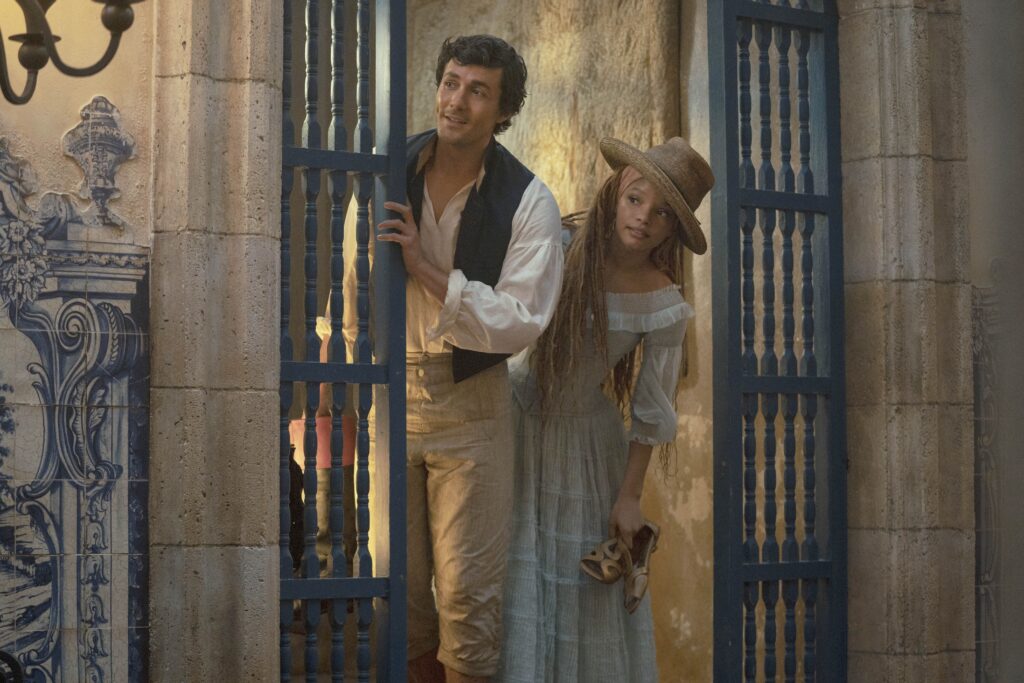
Alex McPherson is an unabashed pop culture nerd and a member of the St. Louis Film Critics Association.

